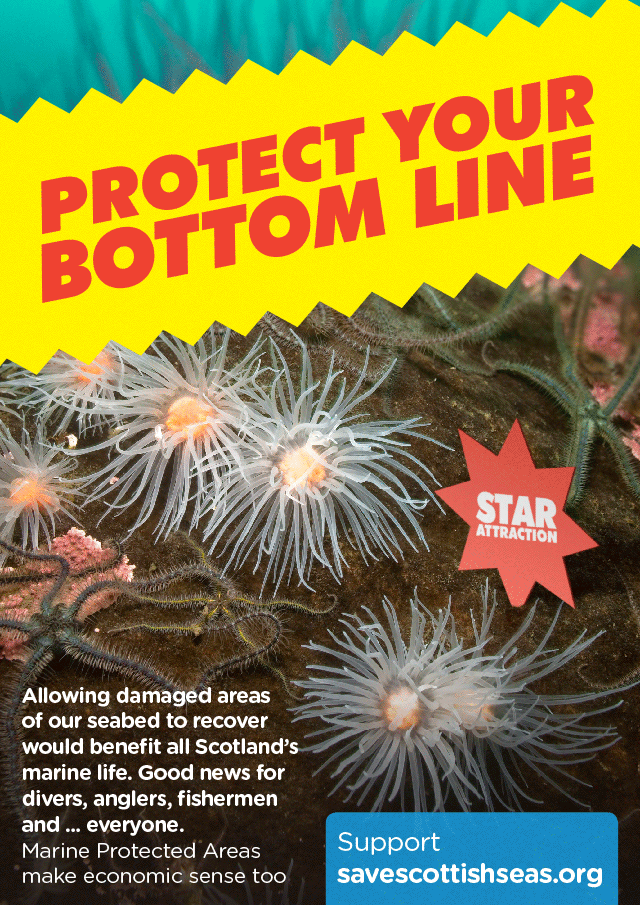‘Protect your bottom line.’ It’s one of the oldest tenets in business; an essential reminder to look after what’s most important. If you don’t look after your bottom line, you might as well forget the rest. It’s a piece of financial wisdom that is extremely relevant to the health of our marine environment. And if we take it seriously, we all stand to gain – from fishermen, restauranteurs and shoreside B&Bs to society at large which benefits from vibrant, resilient coastal communities. So what is that vital ‘bottom line’ of our seas? It is, of course, the seabed.
The seabed performs fundamental and varied roles in sustaining marine life. In dark, deep waters, it recycles the nutrients that flow through the complex ocean food web. In shallower, inshore waters it also provides vital habitats for the spectacular range of organisms that Scotland’s seas are famous for.
On land, if we don’t have soil, we don’t have the complex communities of plants, insects, birds and mammals. Our seabed communities are no different. Below Scotland’s waves, our rocky reefs are home to many thousands of species such as the sea loch anenomes and brittlestars on this poster. The sands, gravels and muds beyond our reefs host equally diverse life. Our entire seabed is a complex living, breathing ecosystem which supports fragile reefs, rich sediments and kelp forests that in turn provide vital nursery and feeding grounds for the larger commercial fish and shellfish.
And so it doesn’t take a marine scientist to work out that if we don’t have a healthy seabed, we don’t have a fully productive sea. And that means, conversely, that many of the economic benefits provided by the sea rely upon us looking after our seabed.
Now for a few worrying facts:
- It is highly likely that there are no ‘pristine’ marine ecosystems left on Scotland’s continental shelf and the deepwater habitats beyond are declining
- Human exploitation across swathes of Scotland’s seabed is a matter of concern. Trawling and dredging can damage fragile habitats such as maerl beds, sponge fields, flameshell beds and fields of tall seapen. And relatively modern fishing practices such as bottom trawling using rock-hopping gear now impact upon previously unreachable rocky habitats
- Maerl grows at 1mm per year. A complex maerl bed – which acts as a nursery for juvenile fish – can take several decades to develop.
So what role could Marine Protected Areas (MPAs) play in improving this picture and reversing some of the damage we have already done? MPAs are basically a tool for working out what we need to protect and recover in our seas so that we can secure an ‘ecologically coherent network’ for future generations. MPAs offer a way of doing this. It is a more strategic approach to marine management and relies upon us all sharing our knowledge for the common good – the health of our seas.
This process is now under way and we cannot get it wrong. If we properly protect and recover our seabed, we will be investing in the long-term health of our seas and the many communities and local economies that depend on it. That would be good news for divers, anglers, fishermen and … everyone.
The seabed truly is the marine bottom line.
The Marine Conservation Society, supported by it’s many Seasearch trained divers, spends a lot of time recording seabed species and habitats and using that information to advocate for their protection. In Scottish MPA proposals put before the Scottish Parliament, MCS co-ordinated Seasearch information supported the case for greater inclusion of sea lochs and augmented other proposals such as for the Small Isles and south Arran. As a member of the Save Scottish Seas campaign, it is a strong proponent of MPAs.

